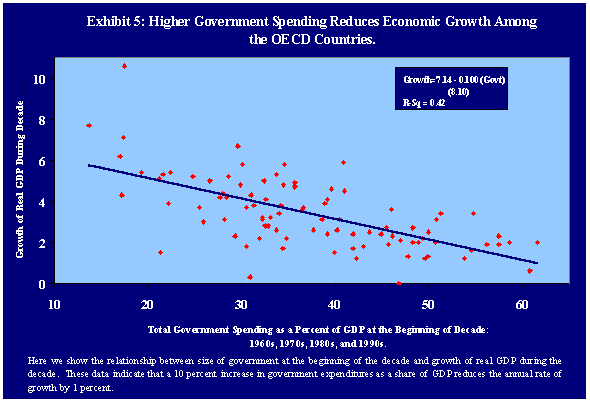Ever seen and hardest hit are elderly and Inheritance tax,
From medicare, college kids getting denied insurance because of high costs for insurance companies, also mandate to force individuals to get insurance, and as an american I am so proud of sucess of females in politics especially sarah palin and christine odonnell, so proud of my usa,
Our taxes are lower than Clinton, Bush I, Reagan, Carter, and more.
If low taxes are the answer to the economy, the economy should be booming!
taxes, fees, and levies at all levels including state and local.
What you dont seem to understand is that if you want to speak of the economy as a whole then you MUST include the above mentioned costs as a whole.
That is what impacts the economy and that burden is at or least near, an all time high.
Not to mention their impact on trade....
That burden is the lowest it's been in years. Look it up.
Makwa, you don't live in New Jersey, do you? Didn't think so, or you would have never made that statement.
The United States is one of the least taxed industrial societies in the world. Our top marginal income tax rate is lower than the world average of 50%, and far lower by historical US standards. A frequently repeated talking point among the right is that we have the highest corporate income taxes in the world (which isn't true), but this gets even more obnoxious when you realize that most of the industrialized countries of the world have VAT taxes (which companies pay a huge portion of), while we don't have any VAT tax.
The graph below shows the continual downward trend of tax rates in this country. By the 2000's top marginal income tax rates reached 35% and capital gains reached 15%.
What's more gross is that since Obama took office, he has signed into law even more tax cuts.
Interesting side note: back in the 60's the national average state sales tax was 2%. The reason for this was because the federal gov't took on most of the state's expenses.
I was thinking about an argument. But it is clear you do not have the mental capacity to have a reasonable discussion.
Watch beck and hannity, you can learn something
You are not comparing comparable economies. Other non-analogous economies are irrelevant.
But I do find this relevant, and more to the point:
The above chart is from a Congressional study of all OECD nations (incl. USA).
The study was called 'The Size and Functions of Government And Economic Growth', Joint Economic Congressional Committee, Jim Saxton, chairman, April 1998.
It shows the relationship between government size (spending percent GDP) and economic growth.
It proves, via the downward sloping dark line, that the larger government size (the X-axis) the smaller economic growth (the Y-axis).
Additional data in this study was of the high-growth, small government nations, such as South Korea.
All studies showed government spending at approx. 20% GDP desirable for economic growth.
This finding should not be surprising, since few economists would agree that the government sector is the prime driver of economic growth over the long term. Therefore, the higher the government spending share of the economy the lower its economic growth.
This 1998 study is at: http://www.house.gov/jec/growth/function/function.htm
I was simply stating the obvious. That US tax rates are at near record lows. If you want to make it about another topic entirely, fine, but don't pretend I said something I didn't.
But as far as this goes, treating gov't spending as monolithic is the problem here. For instance, if you had two fairly compariable countries with similar economies, and both increased gov't spending by 5%, but put that spending in entirely different sectors, would the end result be the same?
Furthermore, using gov't spending as a factor in GDP growth is a rather ambiguous, if not faulty way of gaging anything, something Mister Gwartney readily admits in the link you provided.
This is for good reason too. Our own history has demonstrated high economic growth after the 40's when spending skyrocketed, and also shows that as gov't spending continued to increase, GDP continued to fall later in the century. (I can provide a graph for GDP growth if you need it)
In other words, the argument, is contradictory on it's face.
As your link states.....
"This is a list of tax rates around the world. It focuses on three types of taxes: corporate taxes, individual taxes and sales taxes (value added taxes (VAT) / goods and services taxes (GST) / sales). It is not intended to represent the true tax burden to either the corporation or the individual in the listed country. Note that no distinction is made between "true" taxes, that pay for the government's general budget, and fees paid for specific social benefits such as health insurance or retirement pay. The way these benefits are paid vary by country, and the benefits paid for also vary by country. The US, for instance, has no public health insurance, so either the employer or the employee has to pay for health insurance on top of these taxes."
Tracking topline top rates does'nt really mean shit.
And as YOUR LINK states, the complexity of individual countries tax schemes are such that comparision on such a broad scale is meaningless.
The simple fact, and most relevant is, is that the total tax burden and the total dollars sucked from our economy to fund government are at an all time high and this causes drag on our economy.
""""This is for good reason too. Our own history has demonstrated high economic growth after the 40's when spending skyrocketed, and also shows that as gov't spending continued to increase, GDP continued to fall later in the century. (I can provide a graph for GDP growth if you need it) In other words, the argument, is contradictory on it's face.""""
The circumstances surround the 40's are so extraoridinary they really don't lend themselves to simple analysis....
"Tracking topline top rates does'nt really mean shit."
I have no idea what you're referring to.
"And as YOUR LINK states, the complexity of individual countries tax schemes are such that comparision on such a broad scale is meaningless."
Nonsense. All it is, is a disclaimer that it can't accurately define total tax burden for every citizen in every country. It doesn't take into account fixed living costs from country to country. But it certainly doesn't mean that such a broad scale comparison is meaningless. Rather, you can get a very good idea of the approximate tax burden on a nation by nation basis.
Saying "the total tax burden and the total dollars sucked from our economy to fund government are at an all time high" is rather meaningless. If it wasn't at an all time high, then we'd be doing something wrong. When you have an economy, and a population, that is (almost) always growing, then everything is going to be larger than ever before. But as my previous link shows, it's not at an all time high as a percentage of GDP.
What's sillier is saying that those tax dollars are "sucked from our economy" as if they're going to some vortex never to be seen again, and saying that this drags down our economy. In fact, without that "sucking", our entire economy would collapse.
Alarming, fear-mongering statement; with NO link or ANYTHING to back it up.
Have any MORE baseless fear mongering to share with us? After all; If we're not constantly in fear and dread the Terrorists WIN!
as George and co did. That's fiscal responsibility.
Taxes are the price you pay for civilized democratic society. There are no taxes in Saudi Arabia, gasoline is cheap, government pays you royalty if you are a Saudi, you want to move there? Brunei does the same, want to move there?
Pakistan is another option, there is tax but wealthy Pakistani doesn't pay much. You could become feudal lord, own lots of land and you will be the king. No taxes, have your own army, harem and what not, want to move there?

